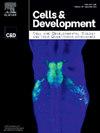罪犯与癌症社会纽带和先天道德对细胞社会的重要性。
IF 2
4区 生物学
Q4 Biochemistry, Genetics and Molecular Biology
引用次数: 0
摘要
目前癌症生物学的教条认为,癌症是一个身份问题:细胞 DNA 的突变导致细胞 "失控 "和增殖失控。然而,这在很大程度上忽视了细胞与细胞之间相互作用的作用,无法解释癌症逆转、表观遗传癌症的存在以及异物致癌等现象。在这篇概念验证论文中,我们借鉴犯罪学的观点,提出癌症也可以被概念化为一个关系问题:虽然细胞的遗传至关重要,但细胞与其他细胞的相互作用对决定其表型也同样重要。我们创建了一个简单的基于代理的正常细胞与癌细胞之间相互作用的网络模型来证明这一观点。我们发现,细胞间的高突变率和低连通性都会促进肿瘤发生。将癌症视为组织中细胞间通信网络的破坏,很好地补充了以基因为中心的范式,为理解和治疗癌症提供了一个新的视角。本文章由计算机程序翻译,如有差异,请以英文原文为准。
Of criminals and cancer: The importance of social bonds and innate morality on cellular societies
The current dogma in cancer biology contends that cancer is an identity problem: mutations in a cell's DNA cause it to “go rogue” and proliferate out of control. However, this largely ignores the role of cell-cell interaction and fails to explain phenomena such as cancer reversion, the existence of cancers without mutations, and foreign-body carcinogenesis. In this proof-of-concept paper, we draw on criminology to propose that cancer may alternatively be conceptualized as a relational problem: Although a cell's genetics is essential, the influence of its interaction with other cells is equally important in determining its phenotype. We create a simple agent-based network model of interactions among normal and cancer cells to demonstrate this idea. We find that both high mutation rates and low levels of connectivity among cells can promote oncogenesis. Viewing cancer as a breakdown in communication networks among cells in a tissue complements the gene-centric paradigm nicely and provides a novel perspective for understanding and treating cancer.
求助全文
通过发布文献求助,成功后即可免费获取论文全文。
去求助
来源期刊

Cells and Development
Biochemistry, Genetics and Molecular Biology-Developmental Biology
CiteScore
2.90
自引率
0.00%
发文量
33
审稿时长
41 days
 求助内容:
求助内容: 应助结果提醒方式:
应助结果提醒方式:


